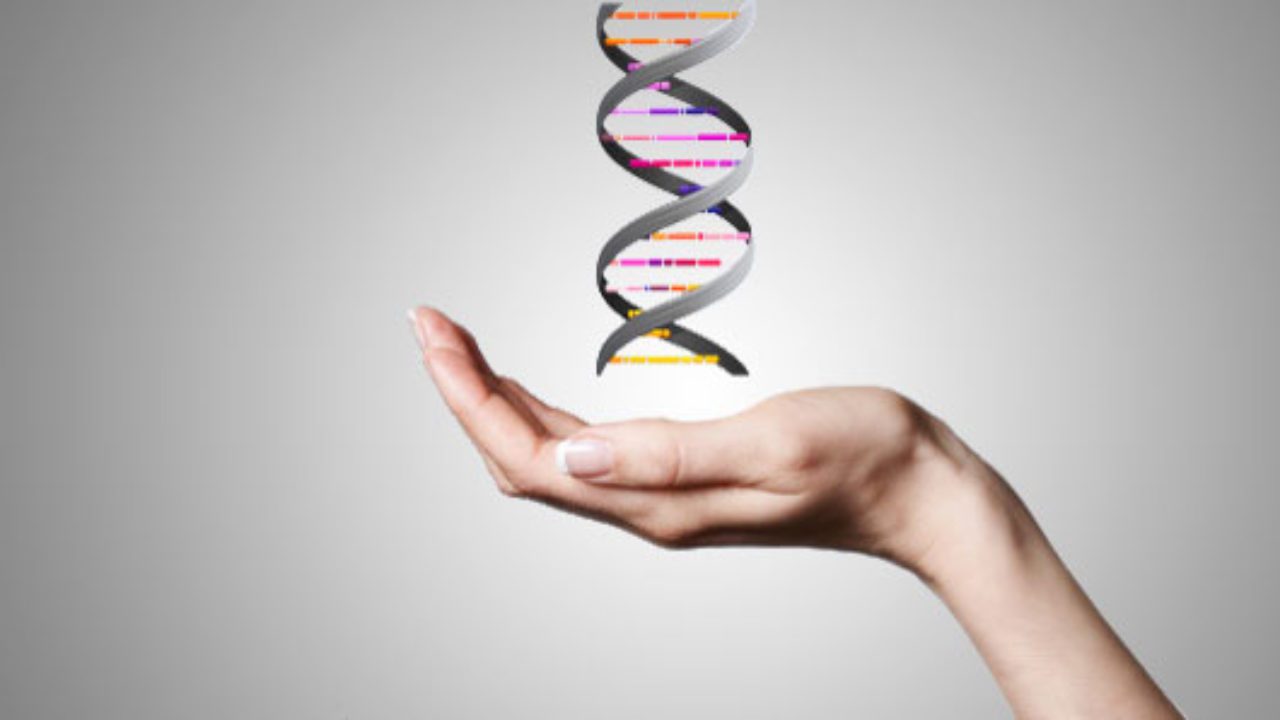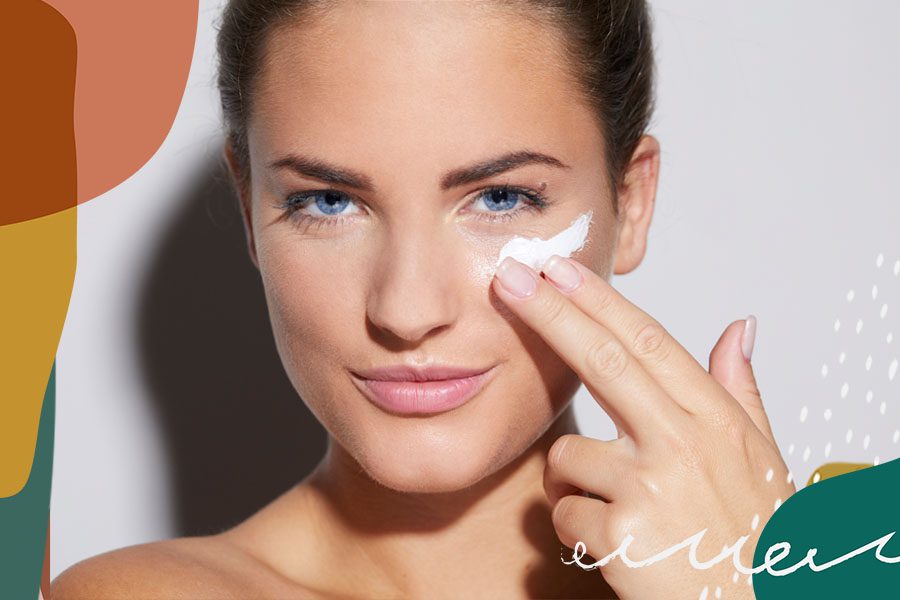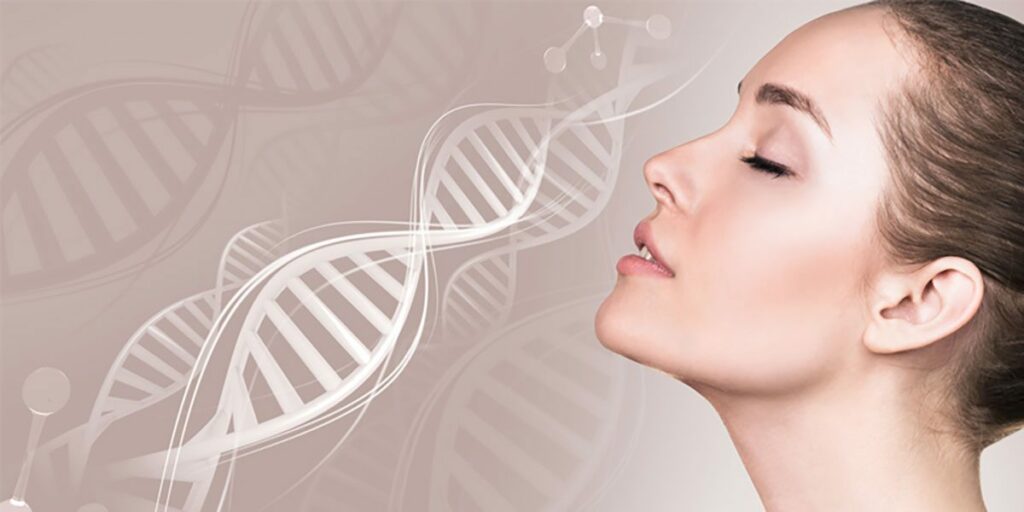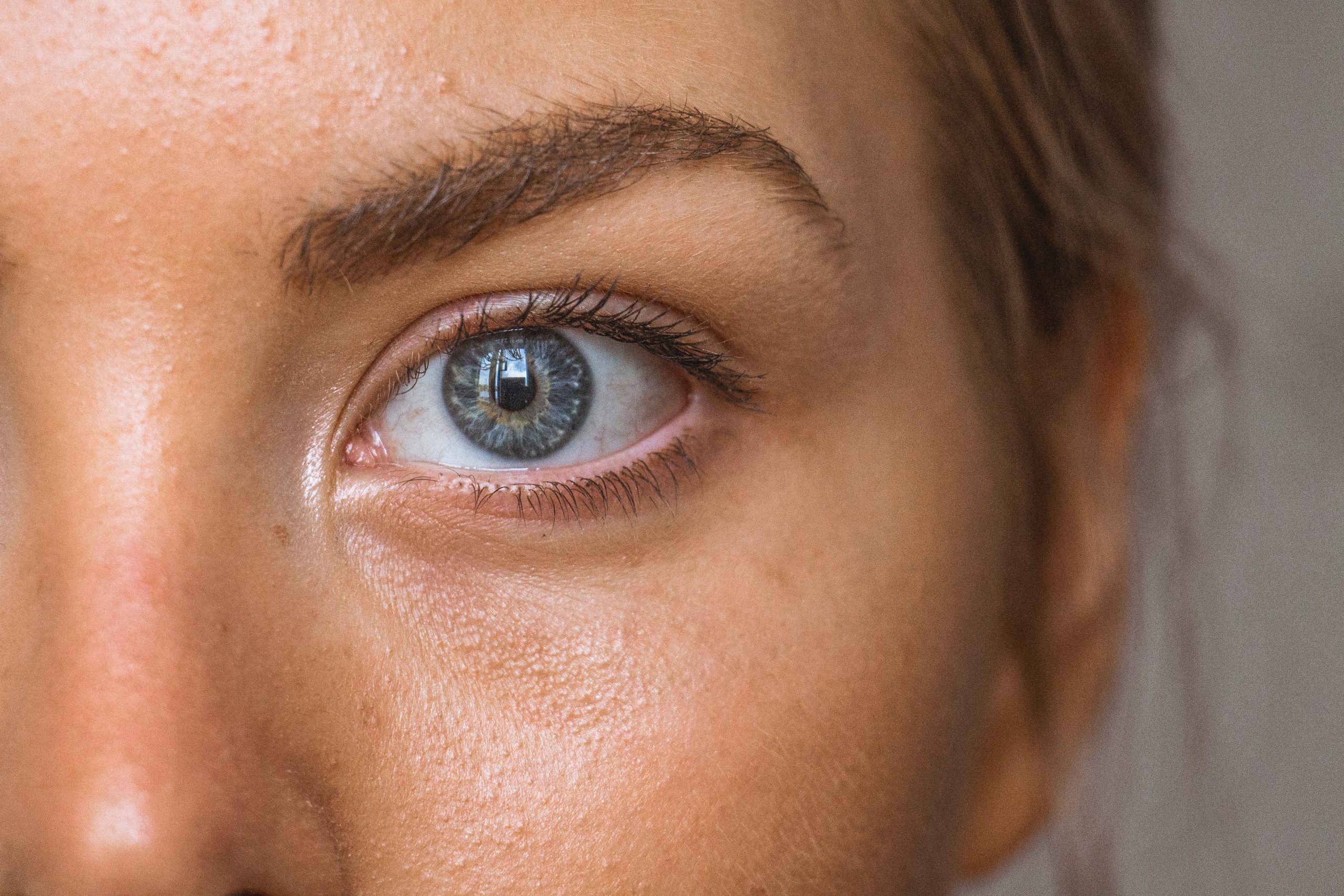Are the genes you are born with, your destiny?
Why is it that one genetically identical twin can be healthy and age gracefully while the other has multiple health issues and ages prematurely?
Since DNA’s discovery in 1953, science has gradually begun to question the belief that DNA defines everything about who we are, how we look and how we function. To find the answers to questions like these, a new science was born – Epigenetics.
And since then, it has been estimated that only 35% of a person’s longevity is determined by DNA, while the remaining 65% is determined by different epigenetic factors.
By themselves, our genes are not active – they are like records, which store information. They are like CDs; if you are old enough to remember what they were ;). To make a CD play music, you would need a player, right? Our epigenome is like that player – it reads a gene and makes it work.
Simply put, Epigenetics is the science that explains how our genes function and what can literally “switch them on and off”.
In medical terms, epigenetics has been explored to treat certain cancers and autoimmune diseases , but scientists have also discovered there are significant implications for skincare. Creams that can switch off ageing genes or speed up cell regeneration genes – imagine! It is mind boggling but so fascinating. Let’s take a closer look…
What is Epigenetics and What Controls our Genes?

As we just said, Epigenetics is the study of the way genes are controlled. External factors affect our DNA, which in turn enables our genes to turn on or off. While our DNA never changes, the way our genes function is affected.
So what factors can actually influence DNA by sending it messages of when to turn certain genes on or off? Research has shown a number of lifestyle choices have huge implications on our DNA and in turn our health and our skin. Here are a few examples:
- Diet. A healthy diet packed with fruits, vegetables, fish and healthy fats prevent disease and can increase longevity.
- Exercise. Regular exercise improves health and can increase your lifespan whereas lack of exercise is a risk factor for chronic disease.
- Microbiome. A diverse and healthy microbiome in the digestive tract and on the skin are vital to overall health.
- Emotions. Positive thinking and good mental health are key to improving health and wellbeing.
So, for example, genes that are involved in determining our weight, our risk factor for disease or how quickly our skin ages, can actually be altered by epigenetic factors (such as the above list) as well as the environment. For years scientists believed that our DNA and the effect it had on our lives was fixed. The discovery of epigenetics turned that theory upside down and we now know that all sorts of factors can influence the way our DNA behaves.
Epigenetics in Skin Care
Epigenetic skincare is designed to surpass any traditional formulas, to not only affect the cellular level but the genetic one, too.
While epigenetic skincare is still in the early stages of research, the very fact that science has proven how external factors such as diet, sun exposure etc. can influence our DNA, then it is highly likely that science can uncover the cellular patterns linked with age. By doing so, chemists could develop products that interact on an epigenetic level to stall the signs of ageing for radiant, healthy skin.
Skincare that can send messages to the genes to tell them to produce collagen and elastin, to increase hydration and to prevent ageing! Wow! While there are skincare brands who are already claiming to be able to achieve some of these outcomes, it is currently not possible to claim that the products work at a genetic level as this moves into the realm of legislative bodies like the Food and Drug Administration (FDA) in the US or the Therapeutic Goods Administration (TGA) in Australia.

One thing that is clear from these developments is how important it is to choose skincare products carefully based on the science behind their creation.
The trickier aspect and one which needs further research, is how to deal with the fact that epigenetics is unique to each individual depending on their physiological, psychological and inherited make-up. This points us in the direction of personalised skincare, which we touched upon in our last blog on the skin microbiome. As our understanding of the skin evolves and develops, it becomes clear that providing clients with individualised skin care is the key to healthier, younger-looking skin.
We had the privilege of hearing some experts talk about epigenetics recently at one of our Zoom Education Sessions. Thys Basson, one of the founders of the PlasmaBlast Academy of Beauty Therapy and Dr Elna Fourie, a PhD-qualified pharmacist. The over-riding theme of this webinar was how skin health starts at a cellular level. The only way to turn the ageing process around starts with the cells. Epigenetics studies have shown that our cells are lacking in 3 vital nutrients, Vitamin D3, Omega-6 and Omega-3. For most of us, the ratio between Omega-6 and Omega-3 is out of balance and is impacting the health of our cells. Even those of us that take fish oil supplements are not getting what we need. The reason for this is polyphenols – Omega-3 fatty acids need polyphenols for protection; without them, the omega-3 loses all its health benefits during the digestive process. If you’re excited to hear more about what we can do to improve our cellular health just click on the video recording here to watch the webinar for yourself!
So, there you have it. The need to keep learning within our profession is vital to providing your clients with the skin they desire. I hope this short blog convinces you to delve further.
We love sharing our passion for the beauty industry with our clients and love seeing their successes. That’s what inspires us daily.
Vital Plus customers benefit from ongoing support, not just technical, but also in marketing, management, Future Beauty events, setting up promotions and many activities to enhance knowledge and industry awareness.
Supporting you in running a successful beauty business is our purpose.
For more details about what we can offer you and your business, don’t hesitate to contact us: 1300 437 638
FAQs:
Q: What is epigenetics in the context of skin care?
A: Epigenetics refers to the study of changes in gene expression that are not caused by alterations in the DNA sequence. In the context of skin care, epigenetics explores how external factors, such as UV radiation, pollution, diet, and lifestyle choices, can influence the activity of genes related to skin health and appearance. Understanding epigenetics helps researchers and skincare professionals develop products and treatments that target specific genes or pathways to promote better skin health.
Q: How does epigenetics affect skin aging?
A: Epigenetic changes can play a significant role in skin aging. Over time, exposure to environmental factors can cause alterations in the epigenome, leading to changes in gene expression that contribute to the visible signs of aging, such as wrinkles, loss of elasticity, and uneven skin tone. By understanding epigenetic mechanisms, skincare experts can develop products and treatments that help restore and maintain a more youthful appearance by modulating gene expression patterns.
Q: Can lifestyle choices influence epigenetic changes in the skin?
A: Yes, lifestyle choices can have a significant impact on epigenetic changes in the skin. Factors such as diet, exercise, stress levels, smoking, and sun exposure can influence epigenetic modifications. For example, a healthy diet rich in antioxidants and nutrients can support proper DNA methylation, a common epigenetic modification, and help maintain skin health. On the other hand, excessive sun exposure or smoking can induce epigenetic changes that accelerate skin aging.
Q: Are there epigenetic skincare products available?
A: Yes, there are skincare products available that claim to target epigenetic processes in the skin. These products often contain ingredients that are known to influence gene expression and epigenetic modifications. However, it’s important to note that the efficacy of these products may vary, and more research is needed to fully understand how specific ingredients can affect epigenetic changes in the skin. Consulting with a skincare professional or dermatologist can help determine the most suitable products for individual needs.
Q: Is epigenetics in skincare backed by scientific research?
A: Yes, epigenetics in skincare is a topic that has gained significant attention in scientific research. Many studies have explored the relationship between epigenetic changes and skin health, including aging and various skin conditions. However, it’s essential to critically evaluate the scientific evidence behind specific claims and products. Look for studies published in reputable scientific journals and consult with skincare professionals who stay up to date with the latest research to make informed decisions about epigenetic skincare.
Sources and Further Reading:
https://www.epigencare.com/epigenetics-and-skincare/
https://www.dermstore.com/blog/epigenetics-and-skin-care/
https://hellogiggles.com/beauty/epigenetic-skincare-products/


